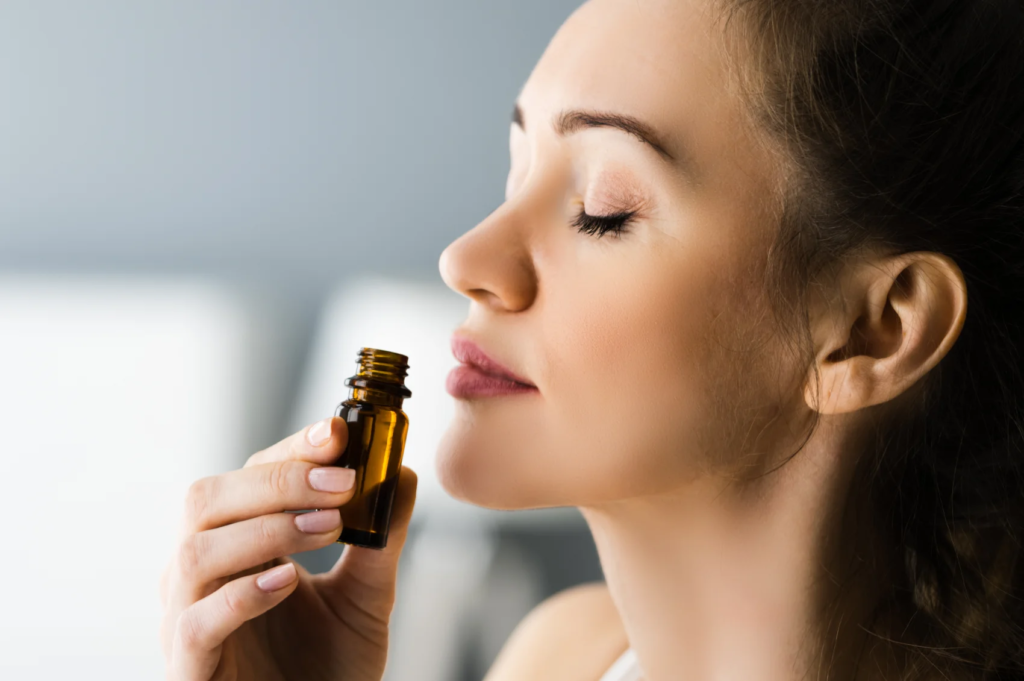Pro and Cons of Aromatherapy
Aromatherapy is a holistic practice that utilizes the aromatic properties of essential oils. It has gained significant popularity in promoting overall well-being. This article explores the pros and cons of aromatherapy, shedding light on its health benefits, potential risks, and side effects.
One of the main advantages of aromatherapy is its ability to provide stress and anxiety relief. Certain essential oils, such as lavender and chamomile naha aromatherapy, have calming properties that can help reduce feelings of tension and promote relaxation. Aromatherapy can also be beneficial for improving sleep quality, as certain scents, like lavender, have been shown to promote a sense of calmness and aid in falling asleep faster.
However, it’s important to note that aromatherapy is not without potential risks and side effects. Some essential oils can cause skin irritations or allergies when applied topically. It’s also crucial to use essential oils in moderation, as excessive exposure to certain scents can lead to headaches or nausea. Additionally, pregnant women and individuals with certain medical conditions should exercise caution and consult with a healthcare professional before using aromatherapy.
Despite these potential risks, aromatherapy can serve as a complementary therapy to enhance overall well-being. It can be used in conjunction with other treatments or practices to support physical and emotional health. By incorporating aromatherapy into their wellness routines, individuals can experience the benefits of aromatherapy and make informed decisions about its usage.

Health Benefits of Aromatherapy
Aromatherapy has been shown to have numerous health benefits, including reducing stress and anxiety, improving sleep quality, and relieving pain and inflammation. When it comes to pain management, aromatherapy can be a natural and effective alternative.
Certain essential oils, such as lavender and peppermint, have analgesic properties and can help alleviate discomfort caused by headaches, muscle aches, and joint pain. These oils can be applied topically or inhaled through a diffuser.
Additionally, aromatherapy is known for its mood-enhancing effects. Essential oils like bergamot and chamomile have been found to promote feelings of relaxation and calmness, while citrus oils like lemon and orange can uplift and energize the spirit.
Whether you’re seeking relief from physical pain or simply looking to improve your mood, aromatherapy offers a holistic approach to wellness.
Potential Risks and Side Effects
When considering the use of essential oils, it is important to be aware of the potential risks and side effects associated with their application. While aromatherapy can provide numerous health benefits, it is essential to understand that not all individuals may respond positively to the use of essential oils.
One potential risk is the occurrence of allergic reactions. Some people may be sensitive or allergic to certain oils, which can lead to skin irritation, respiratory problems, or even anaphylaxis in severe cases.
Additionally, certain oils may have contraindications and precautions that need to be considered. For instance, certain oils should be avoided during pregnancy or by individuals with specific medical conditions.
It is crucial to consult a qualified aromatherapist or healthcare professional before using essential oils to ensure their safe and effective use.
Aromatherapy for Stress and Anxiety Relief
Stress and anxiety relief can be achieved through the use of essential oils. They have been found to have calming and soothing effects on the mind and body. Aromatherapy, the practice of using essential oils for therapeutic purposes, has gained popularity as an effective natural remedy for managing stress and anxiety.
Certain essential oils, such as lavender, chamomile, and bergamot, have been shown to promote relaxation and reduce feelings of anxiety. These oils can be inhaled, applied topically, or used in a diffuser to create a calming atmosphere.
Aromatherapy can also be beneficial for pain management. Certain oils, such as peppermint and eucalyptus, possess analgesic properties which can alleviate headaches or muscle aches.
Additionally, aromatherapy has been found to enhance mood. Uplifting scents like citrus oils can boost energy and promote positive emotions.
Incorporating aromatherapy into your daily routine can provide a natural and holistic approach to stress and anxiety relief. It improves overall well-being and promotes a sense of freedom from the burdens of daily life.

Aromatherapy for Sleep and Relaxation
Quality sleep and relaxation are essential for maintaining optimal physical and mental health. Aromatherapy techniques, using essential oils, can be an effective natural remedy for insomnia and promoting relaxation. Certain essential oils have calming properties that can help induce a state of tranquility, allowing the body and mind to unwind and prepare for a restful night’s sleep.
Lavender oil is often recommended for its soothing effects on the nervous system, promoting deep sleep and reducing symptoms of insomnia. Its gentle floral scent has been shown to lower heart rate and blood pressure, creating a sense of calm and relaxation.
Another essential oil commonly used for sleep is chamomile. Its mild, apple-like aroma is known for its sedative properties, helping to ease anxiety and promote deep relaxation.
To incorporate aromatherapy into your sleep routine, try adding a few drops of your chosen essential oil to a diffuser or pillow spray. Alternatively, you can dilute the oil with a carrier oil and massage it onto your temples or the soles of your feet before bed.
Aromatherapy as Complementary Therapy
Complementary therapy involves incorporating alternative treatments alongside conventional medicine to support overall health and well-being.
Aromatherapy, a form of complementary therapy, utilizes essential oils derived from plants to promote physical and emotional well-being.
One of the benefits of aromatherapy is its potential for pain management. Certain essential oils, such as lavender and peppermint, have analgesic properties that can help alleviate pain and reduce inflammation.
Additionally, aromatherapy has been found to be effective in boosting mood and reducing stress and anxiety. Essential oils like bergamot and ylang-ylang have uplifting and calming effects on the mind and body.
Conclusion
In conclusion, aromatherapy offers numerous health benefits and can be an effective complementary therapy for various conditions. It has been shown to provide stress and anxiety relief, promote better sleep and relaxation, and enhance overall well-being.
